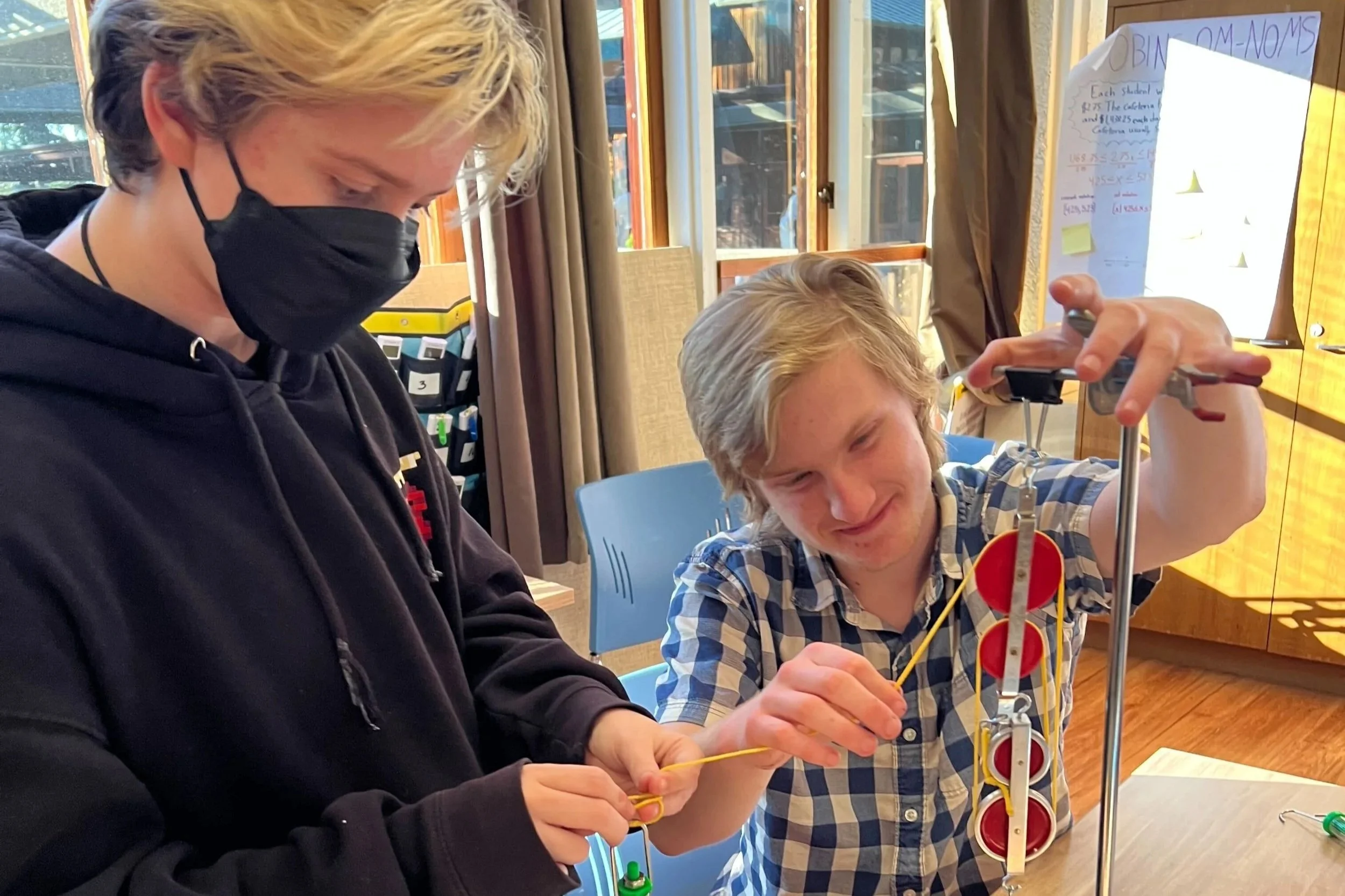The study of physics began with natural philosophy, when ancient scholars made observations of the stars, shadows, and other earthly phenomena in an attempt to make sense of the universe and their place in it. Students are encouraged to adopt a similarly naive and curious approach to the wonders of the physical realm, building up an understanding from simple principles and systems that model reality, using these principles to make predictions on paper, testing our predictions in labs, and reasoning about the relative successes and failures of our model as an explanation.
This course will survey various topics in physics, many familiar from conceptual study, but approached using mathematical rigor developed throughout the high school curriculum. Subjects from past years have included linear and rotational motion, forces, torque, energy, momentum, fluid dynamics, waves, optics, acoustics, and special topics in modern physics.
Through the advanced study of physics, students will:
build problem-solving skills through applied mathematics
predict and explain the behavior of complex systems using fundamental physical principles
refine their ability to question, make sense of and communicate complex scientific ideas
describe unity between systems at different scales and between disciplines
place the development of ideas and technologies along the historical timeline
foster an appreciation of space, time, and the chaos of lived experiences through understanding, questioning, and wonder.

